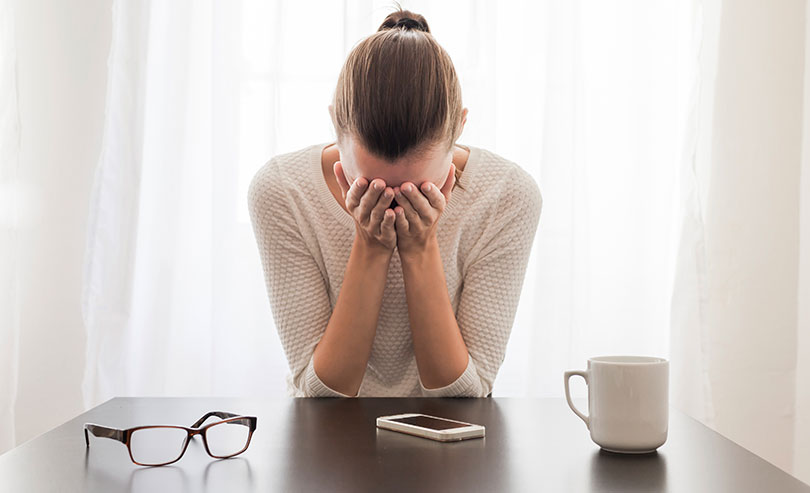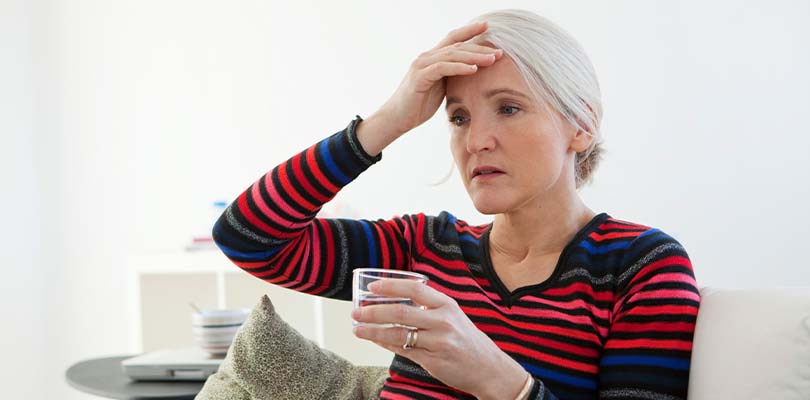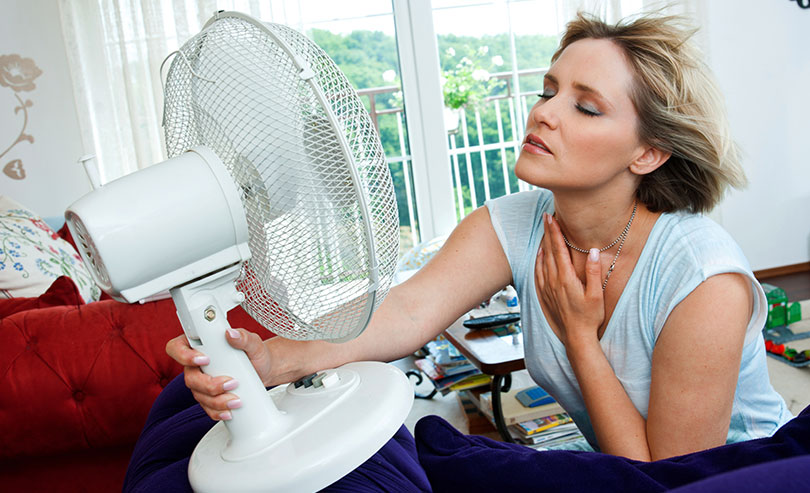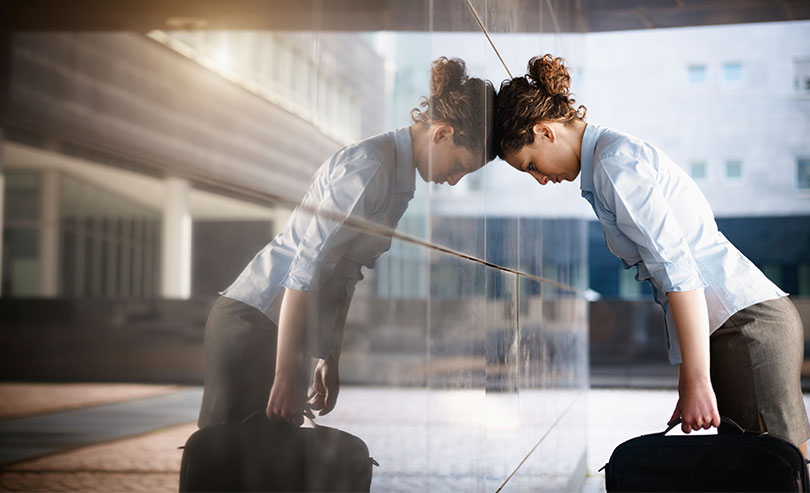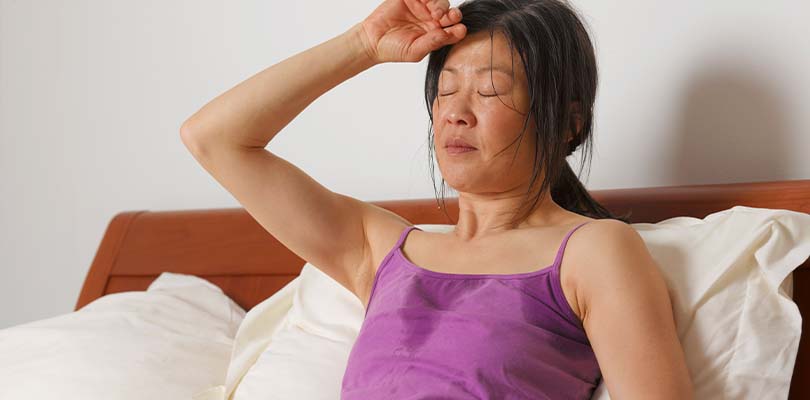Photo Credit: kieferpix / istockphoto.com
Menopause and Fatigue
When I was a teenager I could party into the small hours then drag myself up early in the morning and head off to university with a strong coffee and a chocolate bar to keep me going – this was before the days of energy drinks, which my son seems to have survived on during his first year at college.
Nowadays I long for the nights to draw in so I can get to bed as early as possible, and a big night out is followed by the need for a quiet day or two afterwards. I’m not quite at the stage of being unable to go out two nights in a row, but I have friends who are.
I thought once I had gotten through the hell of babyhood and the toddler years, when dawn was the start of our day, that I would have more energy.
Instead, thanks to the menopausal hormonal storm in my poor beleaguered body I often look and feel like I have been partying all night, when in fact I have had my full eight hours and then some.
This is not uncommon in menopausal women – when estrogen drops energy levels can plummet too. This can affect quality of sleep, too, so although you may think you have slept a decent number of hours, you may not have had the deep, quality sleep that helps you feel energized and restored.
Anxiety and stress can exacerbate menopausal fatigue, which might explain why I feel so terrible a lot of the time – with a houseful of teens my life can be very hectic and stressful!
It sounds dramatic, but the kind of crashing fatigue I am talking about is not just “need to go to bed” tired but more “can’t get out of bed,” tired leaving many women unable to cope with day-to-day life.
If you find you can’t even face pushing the vacuum or getting up from the chair to make a cuppa it is definitely worthwhile making an appointment to see a doctor.
There are other things which can cause this level of fatigue, including chronic fatigue conditions, thyroid issues, diabetes, heart conditions and low iron, so it’s important to seek medical help to rule these out.
If your doctor thinks the menopause is causing your fatigue there are steps you can take to improve your energy levels, ranging from starting a course of HRT to cutting out caffeine.
Hot flashes are a common symptom people experience during menopause. Here's how to prevent hot flashes during menopause so you don't have to sweat.
Yes that’s right – cut down on caffeine. It might seem logical that a cup of coffee or tea might help give you a boost – and it will for a short time – but you will soon “crash” and feel worse.
Also, tea and coffee have a mild dehydrating effect and keeping yourself well hydrated will help with fatigue symptoms. Sorry, but the same goes for alcohol – tempting as it is to end your day with a relaxing glass of wine or three.
Eating refined sugar is also not a great idea – so much for my energy boosting coffee and chocolate bar diet of my teens. As always, a healthy balanced diet is the best bet for increasing energy levels.
This is not always as simple as it sounds – if you are suffering from fatigue the last thing you will feel like doing is making a complex supper.
I am guilty of turning to take-out when I am too tired to cook and I’m sure I am not alone, especially in this day and age when a fatty but tasty take-out is just a few clicks of the phone or computer keyboard away.
I have learned to plan ahead with the help of my friends: the freezer, the microwave and the slow cooker! On days or at times when you have more energy do some cooking, make double of your spaghetti sauce or stew and freeze it, ready for those days when your hormones fluctuate leaving you feeling 100 years old.
Or, if you know you’re most tired towards the end of the day, pop an all-in-one meal into a slow cooker or casserole dish, ready to dish up later in the day.
Now, I am not a big fan of exercise, but it’s true that exerting yourself will conversely give you energy. That buzz after a fitness class or the high you feel after a nice brisk walk is not in your imagination. As well as increasing energy levels, exercise will physically tire you out and help you sleep more deeply, which will also help you feel more rested.
Relaxation techniques might also help – now that’s much more my thing! I learned yoga relaxation and breathing techniques decades ago and still use them today to help me drop off at night or to get through particularly stressful times.
Tai Chi, Pilates and similar techniques might also help, or you could just turn the lights down, put on some music you find relaxing and take five minutes to de-stress and recharge.
Power naps might also be a good idea if you find getting through a whole day difficult – they can give you a great energy boost and improve cognitive ability, alertness and energy. However, make sure you set an alarm and only nap for 15-20 minutes otherwise you will find it harder to fall asleep at your proper bedtime.
Most importantly, pace yourself. Don’t take on too many tasks or responsibilities and learn to say “no” if you are starting to feel overbooked or stressed. I know, it’s easier said than done. This is a technique I have only just started to get the hang of and I can tell you this, above all else, has made a big difference to my energy and general wellbeing. I have learned my limits and learned to prioritize my chores.
Sure, some days the vacuum stays unplugged and the lawn goes un-mowed, but at least I can get through the day without ending up feeling as limp as wet lettuce.
